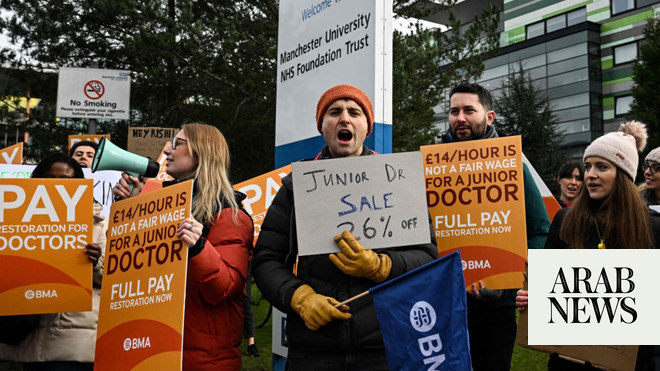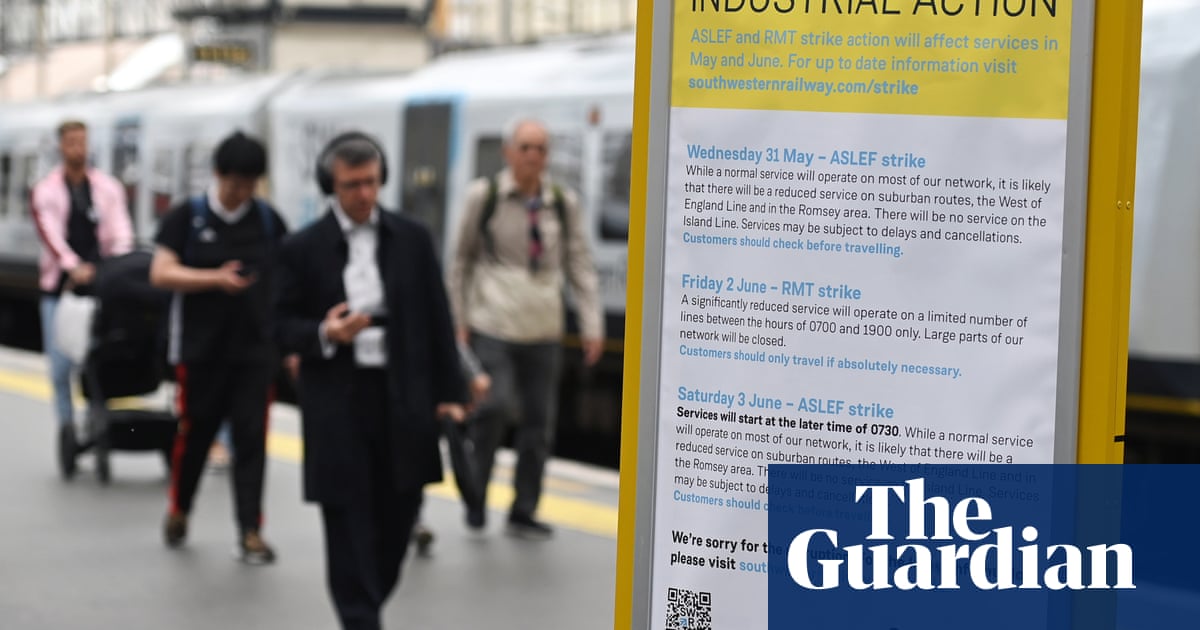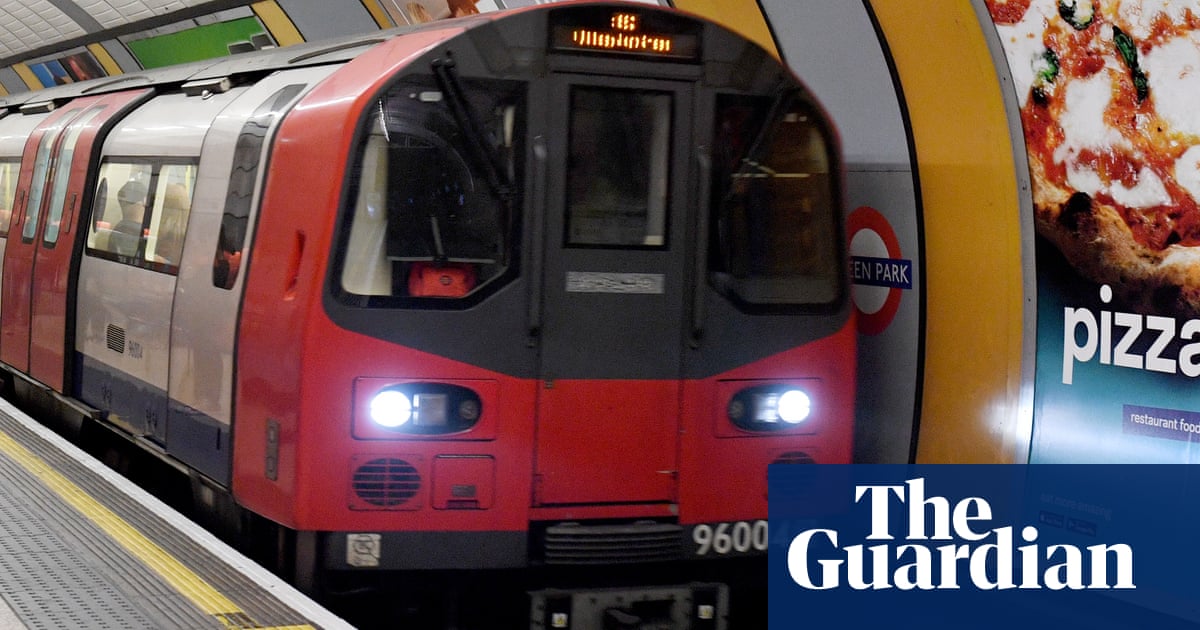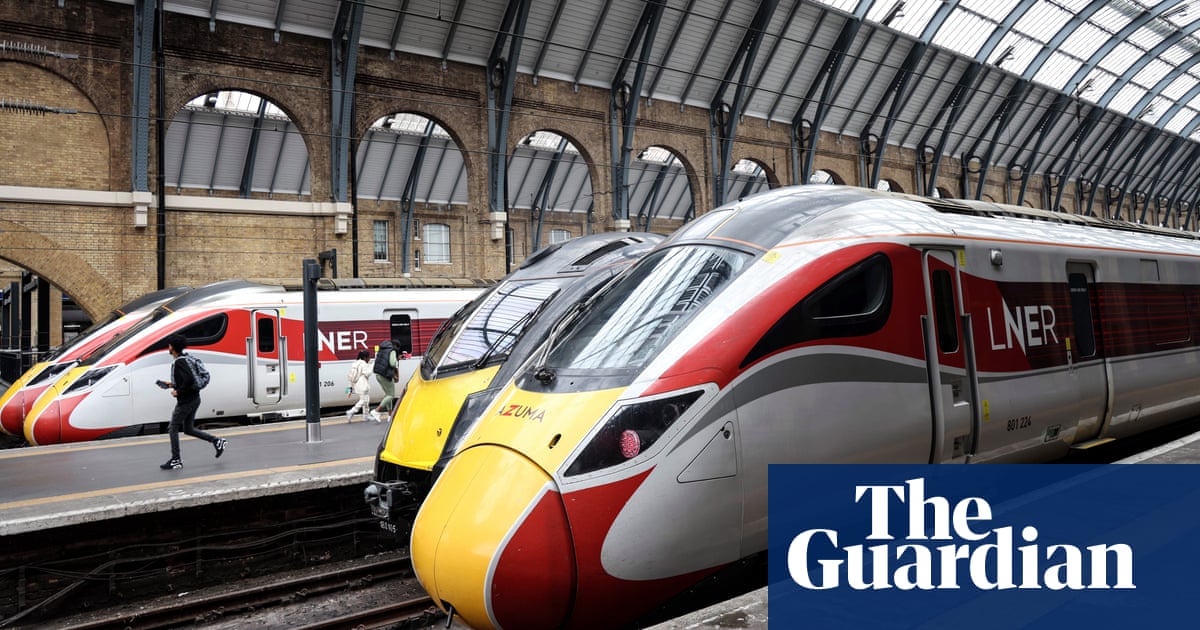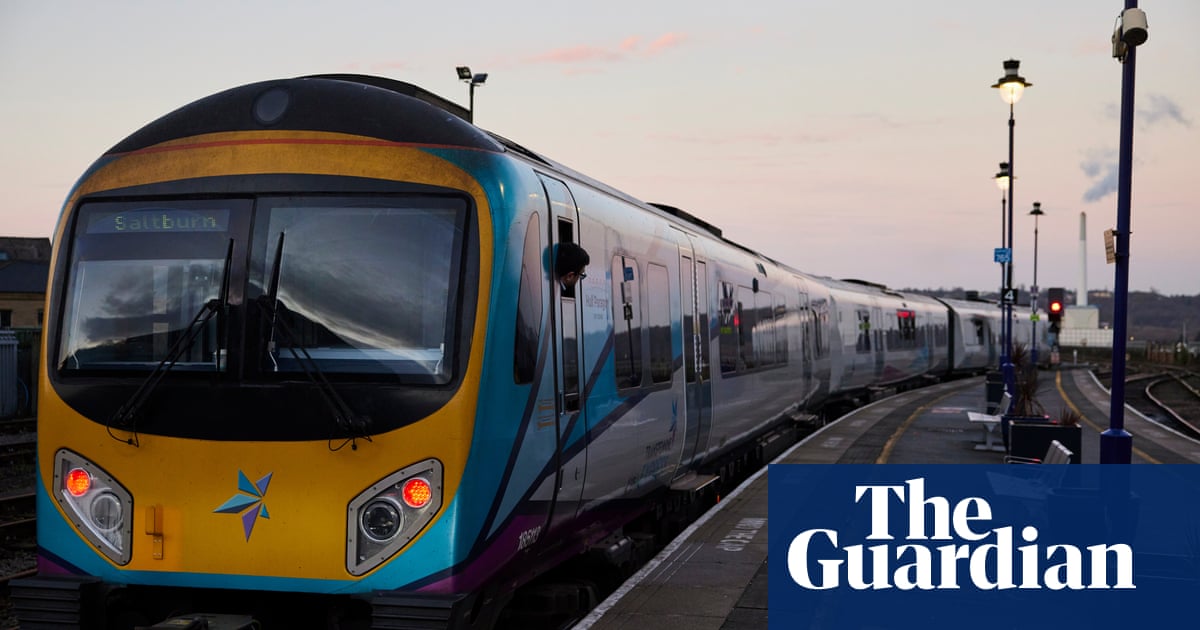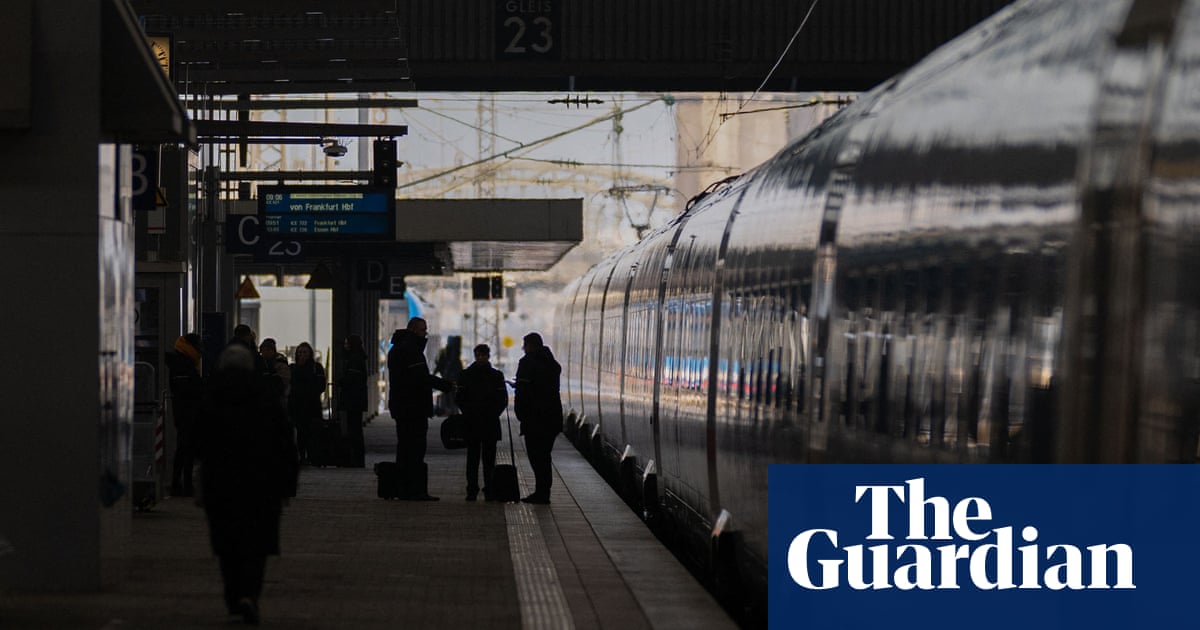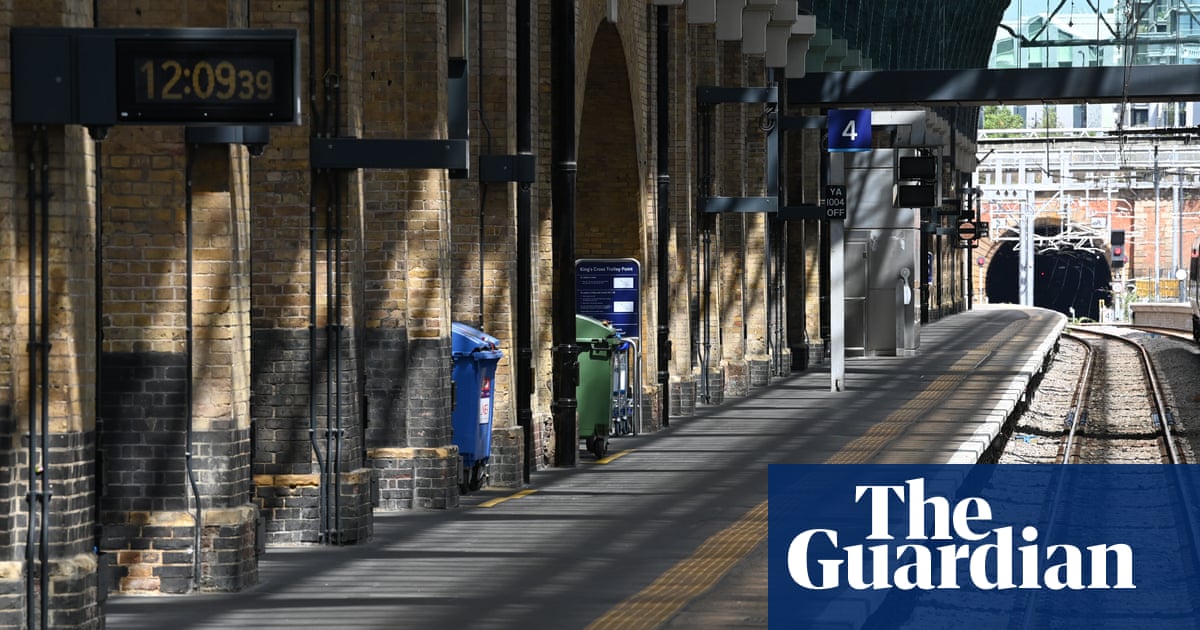
Train drivers have announced two more days of strikes and an overtime ban across England, timed to bring services to a halt at the start and end of the Conservative party conference.
Members of Aslef will strike on Saturday 30 September and Wednesday 4 October, when the Tories’ conference is taking place in Manchester, meaning virtually no national rail services will run in England on those days.
The overtime ban will be in effect the rest of the week from Friday 29 September and will disrupt trains across England and cross-border services into Scotland and Wales.
The industrial action directly affects 16 rail companies contracted to the Department for Transport in England.
Mick Whelan, Aslef’s general secretary, said: ‘While we regret having to take this action – we don’t want to lose a day’s pay, or disrupt passengers, as they try to travel by train – the government, and the employers, have forced us into this position. Our members have not, now, had a pay rise for four years.”
Whelan called on ministers, who ultimately dictate the contracts and pay offers made by train companies, to negotiate an end to the long-running pay dispute. He said the union had had no contact with the transport secretary, Mark Harper, since December, adding: “The train companies have told us … they cannot act without his say-so. But he’s hiding.”
He added: “Do you remember Where’s Wally? Well, what we want to know is where’s Harper?”
The transport secretary called the latest strikes “cynical” and “politically motivated”. Posting on the X social media platform, formerly known as Twitter, Harper added: “Train drivers are paid an average of £60k for a 35-hour, 4 day week. There’s an offer on the table to take that up to £65k – and still they strike, putting their own jobs at risk.”
Aslef last met formally with industry figures from the Rail Delivery Group, the body that represents train operators, in April. These will be the drivers’ 12th and 13th 24-hour strikes since July 2022 in the national pay dispute.
An offer of 8% over two years, tied to changes to working conditions, was dismissed by Aslef earlier this year. The government and industry said it should be put to a full ballot but the union said it would ballot only on an offer it recommended, and drivers have since overwhelmingly voted to continue strikes.
A spokesperson for the Rail Delivery Group said: “We want to give our staff a pay increase, but it has always been linked to implementing necessary, sensible reforms that would enhance services for our passengers.
“We ask the Aslef leadership and executive to recognise the very real financial challenge the industry is facing and work with us to deliver a more reliable and robust railway for the future.”
A Department for Transport spokesperson said the government had “facilitated fair and reasonable offers”, adding: “Further strike action will not only put a strain on taxpayers, but risk driving passengers away from the network for good. These strikes will not prevent the need for essential workplace reforms.”
The RMT union, which represents about 20,000 staff working on stations or as onboard crew for the same train operators in England, has yet to confirm if it will also stage strikes during the Conservative conference.




